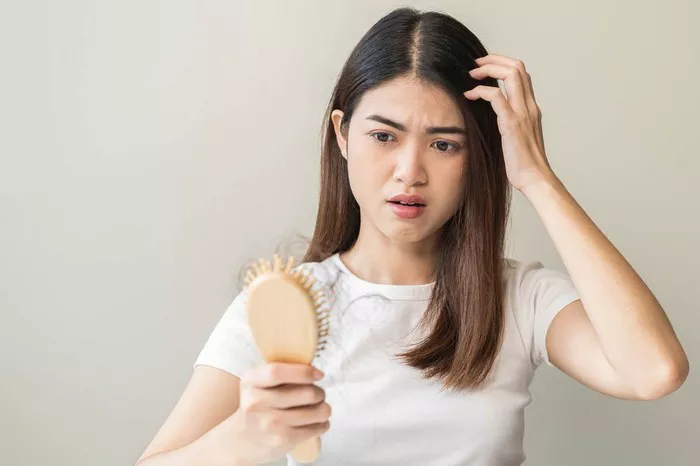I. Introduction to Hair Loss Medications
Hair loss, medically known as alopecia, can be a distressing condition for many individuals. Fortunately, various medications have been developed to address this issue and promote hair regrowth. Among the most widely recognized are Minoxidil and Finasteride. In this article, we’ll delve into the effectiveness of these key hair loss medications, exploring how they work, their benefits, and considerations for those considering them as treatment options.
1. Understanding Minoxidil
How Minoxidil Works: Minoxidil is a topical medication that is applied directly to the scalp. It is thought to stimulate hair growth by widening blood vessels, increasing blood flow to hair follicles, and prolonging the growth phase of hair.
Effectiveness: Minoxidil has demonstrated effectiveness in promoting hair regrowth, particularly in individuals with androgenetic alopecia (genetic hair loss). It is available over-the-counter in various forms, including liquid and foam, making it a convenient option for many.
Application Considerations: Consistency in application is crucial for optimal results with Minoxidil. Users typically apply the solution or foam twice a day to the affected areas of the scalp. It may take several months before noticeable results are observed.
2. Exploring Finasteride
How Finasteride Works: Unlike Minoxidil, Finasteride is an oral medication that works by inhibiting the action of dihydrotestosterone (DHT), a hormone linked to hair loss. By reducing DHT levels, Finasteride aims to slow down hair loss and promote hair regrowth.
Effectiveness: Finasteride has shown efficacy in treating male pattern baldness, a common form of hair loss in men. It is available in tablet form and is typically prescribed by healthcare professionals. Positive results are often observed within a few months of regular use.
Considerations for Use: While effective, Finasteride is not without considerations. It is generally recommended for men and is not approved for use by women, especially those who are pregnant, as it may pose risks to a developing male fetus.
II. Comparing Minoxidil and Finasteride
1. Mechanism of Action
Minoxidil: Acts locally on the scalp to increase blood flow and extend the hair growth phase.
Finasteride: Systemically inhibits the conversion of testosterone to DHT, addressing hormonal factors associated with hair loss.
2. Application and Administration
Minoxidil: Applied topically, available over-the-counter in various forms.
Finasteride: Taken orally in tablet form, typically prescribed by healthcare professionals.
3. Effectiveness
Minoxidil: Effective in promoting hair regrowth, particularly in androgenetic alopecia.
Finasteride: Efficacious in treating male pattern baldness, with positive results observed within a few months.
III. Considerations and FAQs
1. Can Women Use Minoxidil?
Yes, Minoxidil is approved for use by women, and there are formulations specifically designed for female users.
2. Are There Any Side Effects of Minoxidil?
Common side effects may include irritation or dryness of the scalp. In rare cases, individuals may experience more severe side effects, and it’s advisable to consult a healthcare professional if concerned.
3. Is Finasteride Safe for Long-Term Use?
Finasteride is generally considered safe for long-term use, but it’s essential to be aware of potential side effects. Users should consult a healthcare professional if any concerns arise.
4. Can Finasteride Be Used by Women?
Finasteride is not recommended for use by women, especially those who are pregnant or planning to become pregnant, as it may pose risks to a developing male fetus.
5. How Soon Can Results Be Expected with These Medications?
Results with both Minoxidil and Finasteride may take several months to become noticeable. Consistent and long-term use is often necessary for optimal outcomes.
6. Are These Medications a Permanent Solution to Hair Loss?
Minoxidil and Finasteride can help manage and slow down hair loss, but they are not considered permanent solutions. Discontinuing use may lead to a gradual return of hair loss.
7. Can Both Medications Be Used Together for Better Results?
Some individuals may use both Minoxidil and Finasteride together under the guidance of healthcare professionals. Combining these medications may offer a synergistic effect in managing hair loss.
8. Do These Medications Work for Everyone?
The effectiveness of Minoxidil and Finasteride can vary among individuals. Factors such as the cause of hair loss, genetics, and adherence to the treatment regimen can influence outcomes.
Conclusion: Choosing the Right Approach
In conclusion, both Minoxidil and Finasteride are valuable options for individuals seeking to address hair loss. The choice between the two depends on factors such as the underlying cause of hair loss, gender, and individual preferences. Consulting with a healthcare professional is essential for personalized guidance, considering factors like medical history and potential side effects. With consistent use and informed decision-making, individuals can take proactive steps in managing hair loss and promoting regrowth.

